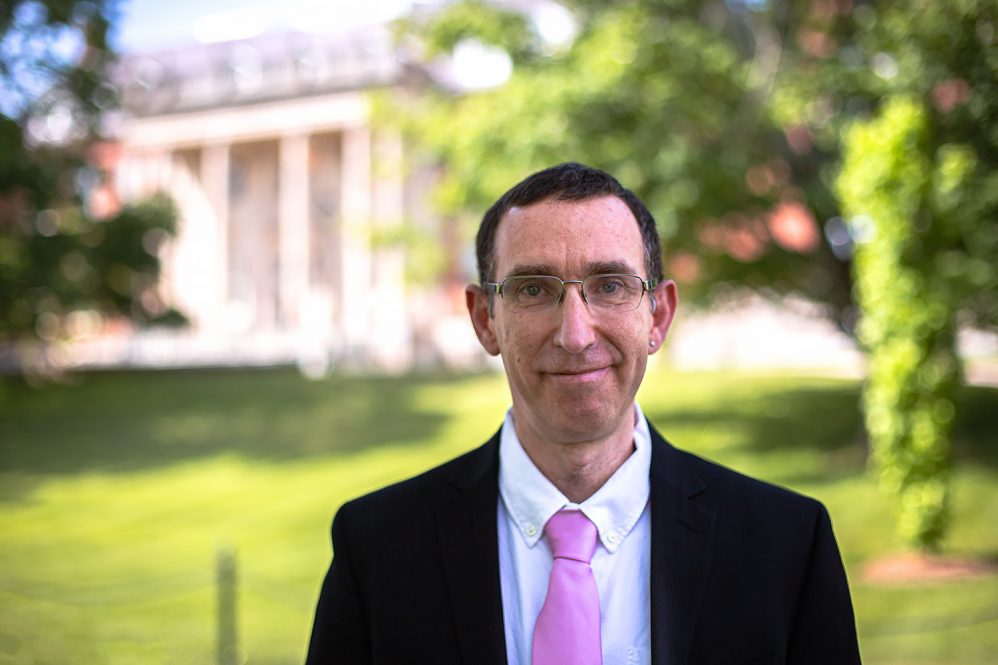When Ofer Harel was 19, just a year into his required three-year military service as an Israeli citizen, he made a deal that would change his future.
“I wanted to go to school, but the military takes all your time,” he remembers. “So, I talked my to officer.”
The arrangement was: Harel would cover the officer’s weekend shift time, in exchange for release on weekday evenings to attend classes in political science, economics and, notably, statistics.
He planned a career in business until, in his penultimate college year, he was granted a position at the university’s statistical consulting center.
In his words, it changed him.
“I liked it so much that I changed my direction,” he says. “I had projects in psychology, biology, political science, and others. For every project I would get, I would learn the science behind it. And I loved it.”
Now, more than three decades later, the new CLAS associate dean for research and graduate education is ready to help lead CLAS out of one of the most challenging years in its history.
With a background in an array of academic fields, Harel will focus on disciplinary and interdisciplinary research and mentoring as his core goals for the position.
“CLAS is the large, interdisciplinary thought engine of UConn,” he says. “Every day, we need to focus on: How do we advance thought?”
The consulting center Harel first worked at assisted graduate students, faculty, and institutes within the university, as well as companies from outside the university, and gave Harel early experience working on projects at local and regional medical centers.
He loved the flexibility afforded to his mentors in statistics, who could choose who they collaborated with, and on projects that inspired them.
“When you work in industry, the questions are generated by your company,” he says. “In academic life, every person has a scientific question in mind. If that intrigues me, I can help, to see how they are able to answer that question in a reasonable way.”
Harel went on to graduate school at Penn State University, where he also worked in a joint consulting center with statisticians and other researchers. The lifelong connections he made there, with his graduate cohort, have inspired his ideas for how to work with graduate students in the College.
“I’m still in touch with people I was in school with 20 years ago,” he says. “They get in touch with questions, and sometimes I have questions for them, too.”
A “big believer” in mentoring, Harel says he was always surrounded by more senior researchers to whom he could direct questions. With the challenges associated with modern graduate school, he says, having a structured mentoring program can be immensely helpful to students.
He plans to strengthen connections among graduate students and create a structure for mentoring for students, and junior and mid-career faculty.
Harel also believes that a structure for research within traditional disciplines forms the foundation upon which the College can build interdisciplinary connections.
“The more we cultivate across disciplines, the more we can extend our knowledge, push research forward, and ensure we are looking at questions from many different perspectives,” he says.
Harel hopes to prioritize initiatives that help faculty find and apply for external grant funding that goes beyond government sources. He will focus on faculty and student support that increases the time they can devote to their research, with the goal of increasing productivity.
In Fall 2021, Harel plans to continue the College’s research workshop series, and reconvene the College’s graduate student advisory committee formed in 2020.
In such a large and diverse college, Harel says he looks forward to working with science, social science, and humanities researchers. He doesn’t see major differences among the three.
“It seems to me that there are many more things which are the same, than things which are different [across disciplines], when we consider research,” he notes.
In this way, Harel sees research in the College as interconnected with teaching both undergraduates and graduate students.
“The liberal arts education in my mind is the engine to scientific thought,” he says. “How do you question? We want our society well-informed about the next generation of questions we need to ask for the good of society.”



